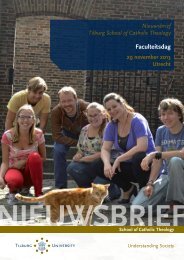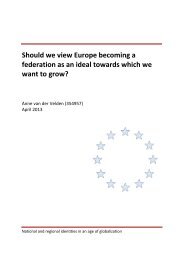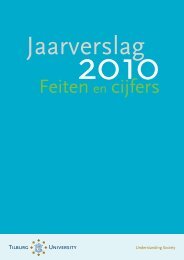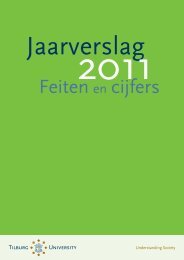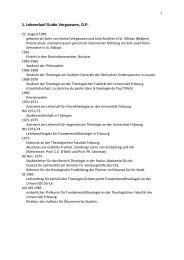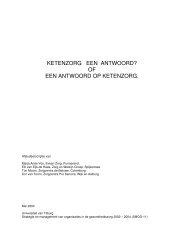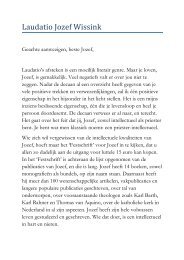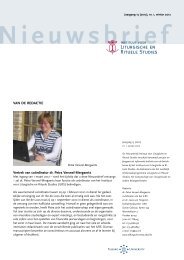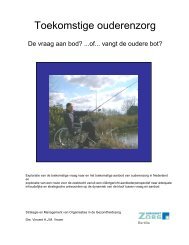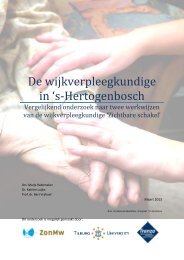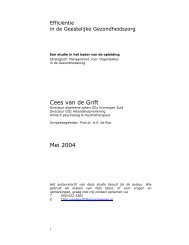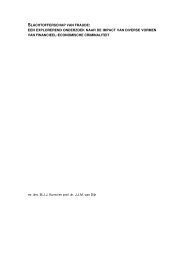Here - Tilburg University
Here - Tilburg University
Here - Tilburg University
You also want an ePaper? Increase the reach of your titles
YUMPU automatically turns print PDFs into web optimized ePapers that Google loves.
Presenter<br />
Busse, Britta; Darmstadt <strong>University</strong> of Technology<br />
Authors<br />
Marek Fuchs; Britta Busse; Darmstadt <strong>University</strong> of Technology<br />
Title<br />
Using an adaptive design in gaining cooperation. Enhancing the recruitment<br />
success in a mobile phone panel survey<br />
Abstract<br />
In recent years declining response and cooperation rates have become a<br />
serious threat to all kinds of surveys. This implies one, reduced sample sizes and<br />
therefore inflating standard errors and decreasing accuracy of survey results,<br />
and two, a potential increase of non-response biases since the population of<br />
survey respondents might differ significantly from the non-responding<br />
population. Both effects have especially severe consequences for panel surveys<br />
since panel studies require large initial samples due to panel attrition (which<br />
reduces sample size in addition to initial non-response). Also, non-response<br />
biases that might be introduced into the panel will be carried on into every<br />
following panel wave. Thus, when recruiting for a panel survey it is necessary to<br />
avoid initial refusals and increase cooperation with the help of an effective<br />
recruitment question wording. A common practice used in the initial phase of<br />
telephone interviews in order to gain cooperation allays respondents’ concerns<br />
with an appropriate interviewer statement addressing the respondents’ qualms.<br />
We propose that – similar to these proactive interviewer persuasion statements<br />
in the beginning of telephone interviews - a respondent-tailored conviction<br />
strategy could enhance the success of a panel recruitment question. In practice<br />
this could be implemented by differential recruitment question versions among<br />
which the most promising one will be presented to the respondent, chosen based<br />
on questions already answered by the respondent like survey attitudes items.<br />
In this paper we will present results from a recruitment survey (n=1,600)<br />
conducted in Germany for refreshing an ongoing mobile phone panel. We tested<br />
four different recruitment question versions in a randomized between-subjects




